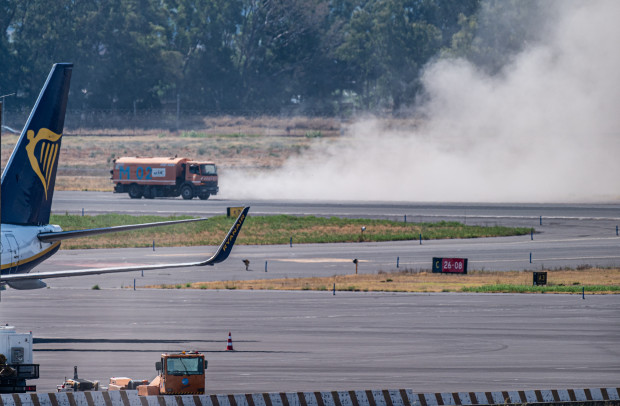
At a time when American travel to Europe is at an all-time high, it has also been a summer heavy on volcanic activity.
On July 10, "the earth's newest baby volcano" was created when a part of Icelandic mountain range Fagradalsfjal cracked open and started sending small jets of molten lava into the air. While the area around the park was initially closed off for safety reasons, tourists were still clamoring to see the red crater and Iceland's board set aside a special trail for getting a distant view.
Don't Miss: Travelers are paying big money to see an exploding volcano in Iceland
While this explosion was not strong enough to affect nearby air travel, another explosion with more after effects took place in Italy a month later.

Sicily's Mount Etna exploded. Here's what you need to know.
On Aug. 14 the Catania–Fontanarossa Airport in Italy's Sicily was forced to close after the eruption of nearby Mount Etna. The biggest and most active volcano in Europe unexpectedly erupted the night before and continued to spew ash into the air the following morning.
As a result, 80 flights scheduled to go in or out of the Sicilian airport on Monday have been canceled while dozens of others meant to take place in the coming hours are currently delayed.
"Due to Etna's eruptive activity and fallout of volcanic ash, flight operations are suspended until 8 p.m.," Catania–Fontanarossa Airport said in a statement it posted on Twitter.
A two-and-a-half-hour drive from the island capital of Palermo, Catania is a port town also popular among tourists exploring Sicily. Many fly in from other European and U.K. capitals on low-cost airlines such as EasyJet (EJTTF) -) and Ryanair (RYAOF) -).
According to data from aviation analytics company Cirium, 235 flights were scheduled to leave Catania–Fontanarossa Airport on Aug. 14. While most were canceled, some were diverted to nearby Trapani and Comiso airports.
"Like all airlines operating into Catania, EasyJet is currently unable to operate many of its scheduled flights to and from the airport today," an airline representative has been telling British outlets. "Unfortunately it is not clear when normal operations will resume.”
As Sicily is an island, options for getting out before flights resume are limited. Many stranded tourists are currently waiting at nearby hotels while there have also been reports of some trying to take a ferry to fly out of Malta.
In Sicily or have a flight scheduled there? Here is what you need to know at this point.
Ryanair has also been thanking affected travelers "for their patience."
While saying that the situation is currently "outside of [their] control" without much information around when they can resume flying, both airlines promised to get travelers to their destinations at the first opportunity and have started arranging hotel and meal accommodations. Air Malta, TAP Air Portugal and Iberia are some of the other airlines with affected flights.
The last time a volcano explosion sowed this much travel chaos occurred in 2011, when the Eyjafjallajökull volcano in Iceland exploded and broke through a glacier. Over 95,000 flights were canceled between April 14 and 25 of that year while a prolonged ash cloud continued to affect travel throughout the spring.
One estimate calculated the global airline industry was losing over $200 million per day for weeks until the air cleared and flights could resume as normal. At the moment, ash is still spewing in the Catania area.







